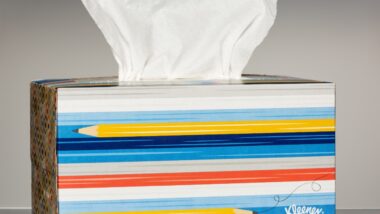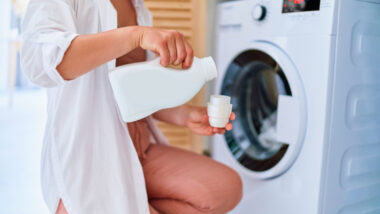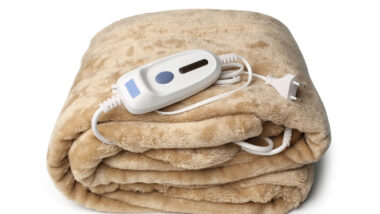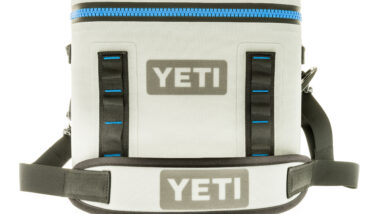Top Class Actions’s website and social media posts use affiliate links. If you make a purchase using such links, we may receive a commission, but it will not result in any additional charges to you. Please review our Affiliate Link Disclosure for more information.
The number of sanitizer brands has significantly increased since the onset of the COVID-19 pandemic. COVID-19 has resulted in the rapid shift of a large number of corporations, including agricultural, beauty, skincare, and liquor corporations in producing alcohol-based sanitizers to meet the rise in demand.
However, Canadian consumers have been warned several times throughout the pandemic regarding the safety and effectiveness of certain hand sanitizers. Most recently, Quebec’s Ordre des chimistes (OCQ) launched an investigation into hand sanitizers amid safety concerns.
Questionable Hand Sanitizers
The COVID-19 outbreak created a high demand for hand sanitizers. To increase the supply, Health Canada took several measures, including permitting the temporary use of technical-grade ethanol in alcohol-based hand sanitizers. However, according to Quebec’s consumer protection website, Protegez-vous, many companies that began manufacturing disinfectants have also been taking advantage of Health Canada’s more lax approval rules.
The arrival of these new players has raised concerns among chemical specialists, who are questioning their formulae, manufacturing methods and the safety of their facilities. In light of these concerns, the OCQ launched an investigation into the methods used by these new manufacturers.
A special report on TVA revealed that some “home-made recipes” of certain hand sanitizer manufacturers posed health risks because they didn’t contain enough alcohol.
The journalists also revealed that some manufacturers prepared alcohol mixtures in their garage, without taking special precautions when transporting the alcohol despite the flammability of the product. Others reportedly bottled their gels by hand, right in the mixing tank, which presents a risk of contamination.
Government Recalls Risky Hand Sanitizers
Hand sanitizer recalls and warnings have been published throughout the pandemic. An initial hand sanitizer warning was posted on Health Canada’s website in April over health concerns related to certain sanitizers.
On Nov. 13, the Government of Canada updated its recall list.
According to Health Canada, the recalls were sparked due to the presence of certain ingredients that are not permitted by Health Canada, or due to inadequate labeling of the product.
Two unauthorized denaturants have been found in hand sanitizers sold in Canada, warns the government site, namely:
- Ethyl acetate: Frequent use of hand sanitizers containing ethyl acetate may cause dry skin, leading to irritation or cracking.
- Methanol: Frequent use of hand sanitizers containing methanol may cause dermatitis, eye irritation, upper respiratory system irritation and headaches.
Among the hand sanitizers on the recall list are:
- 204 Hand Sanitizer
- Adclean
- Aktif Antiseptique instantané pour les mains
- Avery Essentials Hand Sanitizer
- Biogel
- Defend Gel Hand Sanitizer
- eSafe
- Farmessentials Hand Sanitizer
Warning: Contaminated or Risky Ingredients

In addition, to be effective against viruses, hand sanitizers must contain at least 60% alcohol. This can be ethanol or isopropyl alcohol. If a hand sanitizer has under 60% alcohol, “the user will have a false sense of security and may unintentionally contaminate himself or his surroundings,” warns the consumer protection website.
Conversely, if the product contains too high percentages of alcohol (more than 80%), there may be health risks such as skin irritation, hypersensitivity or an allergic reaction.
Health Canada warns that if your hand sanitizer is on the recall list, you should stop using it and either return the product to where you purchased it or throw it out.
Most importantly, to help limit the spread of COVID-19, the government advises Canadians to wash their hands often with soap and water for at least 20 seconds.
If soap and water are not available, says Health Canada, alcohol-based hand sanitizers that have been authorized for sale in Canada are the next best option.
Province-Wide Investigation
The OCQ’s investigation is calling on everyone – the general public, the chemical industry and health professionals – to obtain information on everything related to the hydroalcoholic gel supply chain, from production to use, including transportation, storage and sales.
The investigation will then look into organizations or individuals who are the subject of specific claims or legal actions.
The OCQ predicts a progress report will be released in February 2021, including the publication of the Order’s recommendations regarding the supervision of the production of hydroalcoholic gel.
Stay up to date with the latest coronavirus legal and consumer issues by visiting Top Class Actions’ Canadian Consumer Guide to Coronavirus Legal Issues.
Have you purchased recalled or contaminated hand sanitizer? Tell us your story in the comments below!
Read More Class Action Lawsuit & Settlement News:
ATTORNEY ADVERTISING
Top Class Actions is a Proud Member of the American Bar Association
LEGAL INFORMATION IS NOT LEGAL ADVICE
Top Class Actions Legal Statement
©2008 – 2024 Top Class Actions® LLC
Various Trademarks held by their respective owners
This website is not intended for viewing or usage by European Union citizens.


















5 thoughts onHand Sanitizers Under Investigation Amid COVID-19 Safety Concerns
add me
Add me
Add me
Add me please
add me